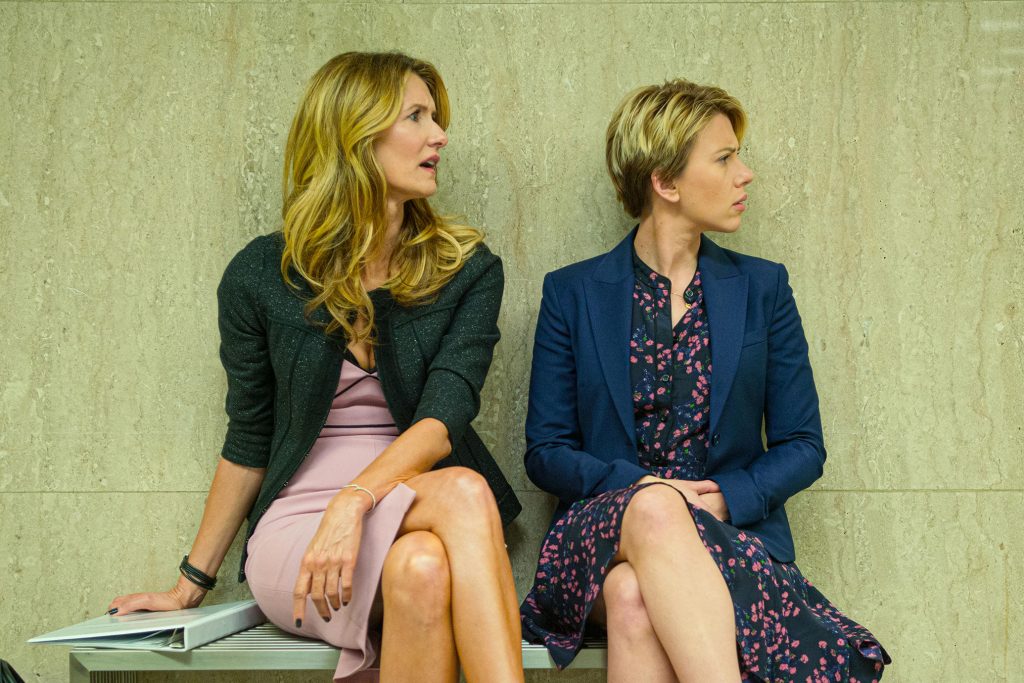If you haven’t watched Marriage Story yet, then prepare yourself. It only has a runtime of 136 minutes, but by the end of it, you will be exhausted. Noah Baumbach presents the story of a marriage breaking apart, and it’s so affecting that you will be just as hurt (and tired) as Charlie and Nicole themselves.
As someone who had gone through a divorce himself, Baumbach has stated in several interviews that the movie is based on observations he made overtime. The movie is not necessarily autobiographical. He did however cast Scarlett Johansson and Adam Driver before he even finished writing the script. The movie is heavily reliant upon dialogues much like Richard Linklater’s movies, having said that the movie, in its subdued technique, is engrossing from the start.
The movie begins with the question of why Charlie (Adam Driver) and Nicole (Scarlett Johansson) were married in the first place. The couple is seen trying then resigning to fix their already broken marriage, from the start of the movie. Charlie’s faults are entirely exposed when Nicole eventually talks with her lawyer, Nora Fanshaw (Laura Dern) and I say exposed because it is the first time when she confesses her suspicion about Charlie committing adultery.
The perspective of the movie refrains from teaming with just one among the two because both the characters get their own voices throughout the movie. Both come off as flawed in their own humane ways as they try to decide upon the best arrangement for themselves along with their son Henry.

Noah Baumbach does a remarkable job of depicting the kind of relation the prime characters have with each other and their friends and families. Charlie’s comfort with Nicole’s family members and especially her mother is natural and beautiful. The point when Charlie is unable to choose food for himself from a menu during his divorce discussion and Nicole does it for him is bittersweet.
The most talked about scene from the movie where Nicole and Charlie share a rather long dialogue where they both have meltdowns is mesmerizing. As an audience you begin to question why movies rarely show the raw transitions within the outbursts of absolute humane emotions. The befuddlement Charlie feels whilst having to hurry with the divorce proceedings for his son is palpable in every shot that deals with his frustration. The moment when Charlie helps Nicole close a gate is poetic in nature, they know what it resembles. Charlie as a nervous dad during the inspection is awfully solicitous, he tries to do his best but his restlessness gets the better of him. In fact, in that moment he is his most vulnerable self.
The settings within the movie are impeccably immaculate to the last detail. The transitions between Los Angeles and New York does not only reverberate throughout the descriptions of the places by the characters but it also echoes in the backdrops of all the scenes involved. The outfits compliment the people along with the setting. The music is stressed upon when the scene demands it.
The actors however make the movie. They are authentic and straightforward. They do their best to make the most of the movie and it shows.
The scene where Charlie and Nicole are in court while their lawyers fight for them ring true on many accounts. It realistically depicts how people don’t really breakdown or shout out in public places when they are not supposed to. The suppression of their turmoil is refreshing to witness. The flow of the aforementioned talked about scene is smooth because of diligent actors like Scarlett and Adam. Laura as Nora is unlike any work of hers, I’ve seen so far. She hit the nail on the head as the shrewdly pragmatic lawyer.
There’s an argument to be made that perhaps the movie takes the side of Charlie, since he gets more screentime than Nicole. But Baumbach does enough to flesh both of these characters out. He ends the movie on a hopeful note, that acknowledges that despite their battles, the love that led them to each other in the first place will always be there. It would have been so easy to vilify either or both of the characters, but Baumbach chooses the kinder (and harder) route of highlighting their best sides.
If you haven’t seen Marriage Story yet, please do, whether you are single or taken. It’s an acutely human story that will resonate across the board.